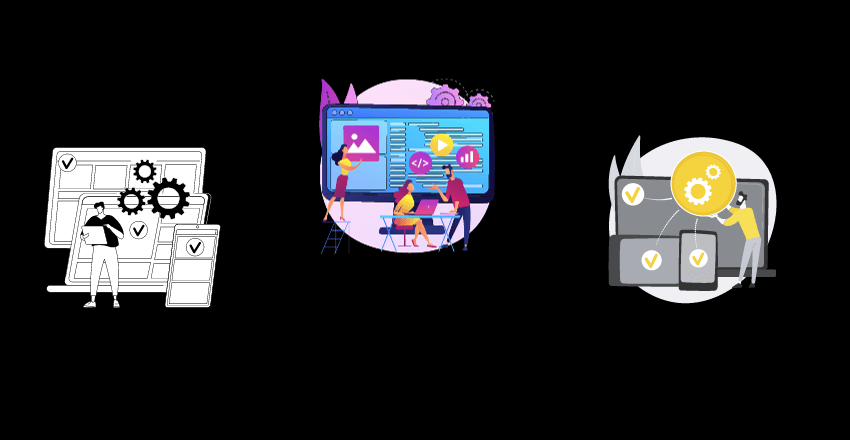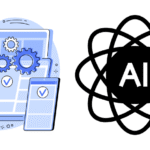 How to Manage a Cross Platform Development Team – Navigate the complexities of cross-platform team leadership. Gain insights on coordination, tech stack alignment, and project management. Boost team performance and deliver exceptional outcomes.
How to Manage a Cross Platform Development Team – Navigate the complexities of cross-platform team leadership. Gain insights on coordination, tech stack alignment, and project management. Boost team performance and deliver exceptional outcomes.
The ability to create multi-platform solutions requires a unique set of skills and expertise, coupled with effective team management strategies.
Key Takeaways:
- Effective cross platform development team management requires a strong foundation of skilled and diverse team members.
- Clear communication channels and collaboration techniques are crucial for streamlining workflows and improving team dynamics.
- Implementing agile project management methodologies can optimize productivity and ensure project success.
Understanding the Importance of Cross Platform Development Teams
With the rise of mobile and web applications, there is a growing demand for software that can work seamlessly across multiple platforms and devices. This is where cross platform development teams come into play.
Cross platform development teams bring together individuals with diverse skillsets and backgrounds to create software that can run on a variety of operating systems, devices, and browser types. By harnessing the power of multi-platform teams, businesses can improve their reach, save time and resources, and stay competitive in the market.
Building a Strong Foundation: Hiring the Right Team Members
One of the critical aspects of managing a cross-platform development team is to ensure that you have the right individuals on board. A high-performing team consists of individuals who have diverse skill sets, expertise across multiple platforms, and can collaborate effectively.
The following team management strategies can help you hire the right team members:
- Define the roles and responsibilities: Clearly define the job responsibilities and required skill sets for each role. This will help you identify the ideal candidates and make the hiring process more efficient.
- Look for cross-functional skills: When hiring, look for individuals who have experience working across multiple platforms or can adapt to new ones quickly. This will help you build a well-rounded team that can handle multiple tasks.
- Assess cultural fit: A strong cultural fit is essential for team dynamics and overall productivity. Look for individuals who share the same values and mindset as your existing team members.
- Encourage diversity: A diverse workforce can bring fresh perspectives and ideas to the table. Encourage diversity in terms of gender, ethnicity, and background when hiring new team members.
By implementing these team management strategies, you can build a cross-platform development team that has the right mix of skills, experience, and cultural fit to deliver successful projects.
Establishing Clear Communication Channels

Effective communication is essential when managing a cross platform development team. With team members working remotely or in different time zones, it’s important to establish clear communication channels that allow for seamless collaboration. Here are some team management strategies to help establish effective communication:
Utilize Communication Tools
There are a variety of communication tools available for cross platform development teams, such as Slack, Microsoft Teams, or Zoom. These tools can help team members stay connected and communicate in real-time. Utilizing these tools can help to foster a sense of community and enable quick and easy problem-solving.
Establish Guidelines for Communication
Establishing clear guidelines for communication can help to avoid confusion and ensure everyone is on the same page. For example, guidelines could include the preferred mode of communication, response time expectations, and availability windows. By setting expectations, team members can work more efficiently and effectively, without wasting time waiting for replies or messages.
Encourage Regular Check-Ins
Encouraging regular check-ins can help to ensure that everyone is on track and up to date with project developments. This could include daily or weekly team meetings, or one-on-one check-ins with team members. By scheduling regular check-ins, team members can ask questions, provide updates, and receive feedback in a timely manner.
By utilizing these communication strategies, cross platform development teams can work more efficiently and effectively, ensuring projects are completed in a timely and successful manner.
Implementing Agile Project Management Methodologies
When it comes to effectively managing a cross platform development team, implementing agile project management methodologies can make a significant difference. Popular methodologies like Scrum and Kanban prioritize collaboration, continuous feedback, and flexibility. By utilizing these methodologies, a cross platform development team can ensure that every team member is on the same page and that all tasks are being completed efficiently and effectively.
One of the key benefits of agile project management is its emphasis on regular check-ins and status updates. This allows team members to stay up-to-date on each other’s progress, identify potential roadblocks early on, and make necessary adjustments to keep the project on track. Agile methodologies also encourage quick and ongoing feedback between team members, ensuring that everyone is on the same page and that the end result meets all stakeholders’ expectations.
In addition to improving communication and collaboration, agile methodologies can help a cross platform development team stay on track with project timelines and budgets. By breaking down tasks into smaller, manageable sections, team members can better estimate the time and resources required to complete each task. This allows for more accurate planning and ensures that the final project is delivered on-time and within budget.
Overall, implementing agile project management methodologies can help a cross platform development team overcome challenges and work more efficiently. By prioritizing communication, collaboration, and flexibility, a team can successfully manage and deliver on complex, multi-platform projects.
Fostering a Culture of Collaboration and Knowledge Sharing

In order to effectively manage a cross platform development team, it’s crucial to foster a culture of collaboration and knowledge sharing. This involves creating an environment where team members feel comfortable sharing their ideas and working together to achieve project success.
One way to encourage collaboration is to provide opportunities for team members to work on projects together, rather than in isolation. This can be achieved by assigning tasks that require input from different areas of expertise, or by implementing cross-functional teams that work on specific projects.
Another important aspect of fostering collaboration is to establish an open-door policy, where team members feel comfortable approaching one another with questions or concerns. This can be facilitated through team meetings, one-on-one check-ins, or through the use of messaging platforms that promote real-time communication.
Knowledge sharing is another crucial component of effective team management for a cross platform development team. This involves sharing information about best practices, new technologies, and relevant industry developments. One effective way to encourage knowledge sharing is to establish a knowledge management system, where team members can document and share their expertise for the benefit of the entire team.
Additionally, it’s important to encourage continuous learning within the team. This can be achieved by providing access to training resources, or by encouraging team members to attend conferences and industry events. By providing opportunities for continuous learning, team members can stay up-to-date with the latest industry trends and continually improve their skills.
Overall, fostering a culture of collaboration and knowledge sharing is crucial for effectively managing a cross platform development team. By creating an environment where team members feel comfortable working together and sharing their expertise, teams can achieve greater project success and drive innovation in their respective industries.
Ensuring Effective Time and Resource Management
Managing time and resources effectively is crucial to the success of any cross platform development team. In order to optimize productivity and ensure that projects are completed on time and within budget, it is important to implement strategies that prioritize efficient time and resource management.
1. Set Clear Priorities and Deadlines
Establishing clear priorities and deadlines for each project is essential in managing a cross platform development team. This ensures that team members remain focused and on track, and that everyone has a clear understanding of the project milestones and goals. Utilizing project management tools such as Asana or Trello can help in keeping track of deadlines and ensuring that tasks are completed on time.
2. Implement Agile Practices
Implementing agile practices such as Scrum or Kanban can help in streamlining the development process and reducing the time and effort required to complete tasks. These methodologies prioritize continuous delivery and iteration, allowing for quick adaptation to changes in project requirements.
3. Delegate Tasks Efficiently
Delegating tasks effectively is crucial in managing time and resources efficiently. This means assigning tasks to team members based on their skills and expertise, and ensuring that each team member has a manageable workload. It is also important to communicate clearly and regularly with team members about project progress and updates.
4. Identify and Address Bottlenecks
Identifying and addressing bottlenecks in the development process is important in ensuring that the team remains productive and efficient. This means identifying areas where progress is slow or where team members are facing challenges, and implementing solutions to overcome these obstacles.
5. Optimize Collaboration and Communication
Encouraging collaboration and open communication among team members is essential in ensuring effective time and resource management. Utilizing communication tools such as Slack or Skype can help in streamlining communication and ensuring that team members are able to work together seamlessly.
- Set Clear Priorities and Deadlines
- Implement Agile Practices
- Delegate Tasks Efficiently
- Identify and Address Bottlenecks
- Optimize Collaboration and Communication
Overcoming Challenges and Conflict Resolution

Cross platform development teams are not immune to challenges and conflicts. It is crucial to address these issues proactively and maintain a positive team dynamic. Here are some common challenges that cross platform development teams might face and strategies to overcome them:
Managing Conflicting Priorities
Cross platform development teams often have to balance the demands of multiple projects and clients. Conflicting priorities can lead to delays and stress among team members. To mitigate this challenge, a team leader can:
- Establish clear priorities: Ensure that all team members understand the project goals and priorities. Assign tasks based on the urgency and impact of the project and keep everyone informed of any changes.
- Encourage open communication: Encourage team members to voice their concerns and collaborate to identify the best course of action.
Dealing with Technical Issues
Software development is a complex process, and technical issues are bound to arise. These can include compatibility issues, bugs, or unexpected errors. To overcome these challenges, a team leader can:
- Encourage problem-solving: Foster an environment where team members feel comfortable identifying and solving technical issues. Encourage knowledge sharing and collaboration to find solutions.
- Establish clear roles and responsibilities: Ensure that all team members understand their roles and responsibilities. Assign tasks based on each member’s strengths and expertise.
Handling Communication Issues
Effective communication is essential for any cross platform development team. Poor communication can lead to misunderstandings and delays. To address communication issues, a team leader can:
- Establish clear communication channels: Ensure that all team members are on the same page about the communication tools to be used. Establish guidelines for responding to emails, messages, and other forms of communication.
- Encourage regular check-ins: Schedule regular check-ins with team members to ensure that everyone is on track and any issues are identified and addressed promptly.
Managing a cross platform development team is not easy, but with effective team management strategies in place, it can be a rewarding experience.
By understanding the importance of cross platform development teams, building a strong foundation, establishing clear communication channels, utilizing agile project management methodologies, fostering a culture of collaboration and knowledge sharing, ensuring effective time and resource management, and overcoming challenges and conflict resolution, a team leader can successfully manage a cross platform development team and deliver high-quality projects.
Conclusion – How to manage a cross platform development team
Managing a cross platform development team requires a multifaceted approach that takes into account the unique needs and challenges of such a team. By implementing the strategies discussed in this article, managers can ensure that their team is well-equipped to handle any task or project that comes their way.
Ultimately, effective team management is the key to success for any cross platform development team. By prioritizing collaboration, communication, and productivity, managers can successfully manage their team and achieve their project goals.
External Resources
https://slack.com/blog/collaboration/pick-communication-channels-at-work
https://www.podium.com/article/communication-channels/
FAQ – How to manage a cross platform development team

Q: How do I manage a cross-platform development team?
A: Managing a cross-platform development team requires effective communication, strong leadership, and the implementation of agile project management methodologies.
Q: Why is a cross-platform development team important?
A: A cross-platform development team is important because it allows for the creation of software and applications that can run on multiple platforms, increasing accessibility and reaching a larger audience.
Q: How do I hire the right team members for a cross-platform development team?
A: Hiring the right team members for a cross-platform development team involves identifying the necessary skills and experience, conducting thorough interviews and assessments, and promoting a diverse and inclusive work environment.
Q: What are some effective communication channels for a cross-platform development team?
A: Effective communication channels for a cross-platform development team can include project management tools, instant messaging platforms, and regular team meetings.
Q: Why should I implement agile project management methodologies for a cross-platform development team?
A: Implementing agile project management methodologies, such as Scrum or Kanban, allows for flexibility, adaptability, and increased collaboration within a cross-platform development team.
Q: How can I foster a culture of collaboration and knowledge sharing within my cross-platform development team?
A: Fostering a culture of collaboration and knowledge sharing involves promoting open communication, facilitating regular team discussions and workshops, and recognizing and rewarding team contributions.
Q: How do I ensure effective time and resource management within a cross-platform development team?
A: Effective time and resource management within a cross-platform development team can be achieved through proper planning, prioritization, and the use of project management tools.
Q: What are some strategies for overcoming challenges and resolving conflicts within a cross-platform development team?
A: Strategies for overcoming challenges and resolving conflicts within a cross-platform development team include active listening, mediation, and promoting a positive team culture.
Charlotte Williams is a talented technical author specializing in cross-platform app development. With a diverse professional background, she has gained valuable experience at renowned companies such as Alibaba and Accenture. Charlotte’s journey in the tech industry began as a mobile UX designer back in 2007, allowing her to develop a keen understanding of user-centric app design.
Proficient in utilizing frameworks like React Native and Flutter, Charlotte excels in building cross-platform mobile apps and imparting her knowledge to aspiring developers. She pursued a degree in Computer Science at Cornell University, equipping her with a strong foundation in the field. Residing in San Francisco with her three beloved dogs, she finds solace in hiking the hills and connecting with nature. Charlotte’s passion for app development, combined with her dedication to sharing expertise, makes her an invaluable resource in the world of cross-platform app development.







